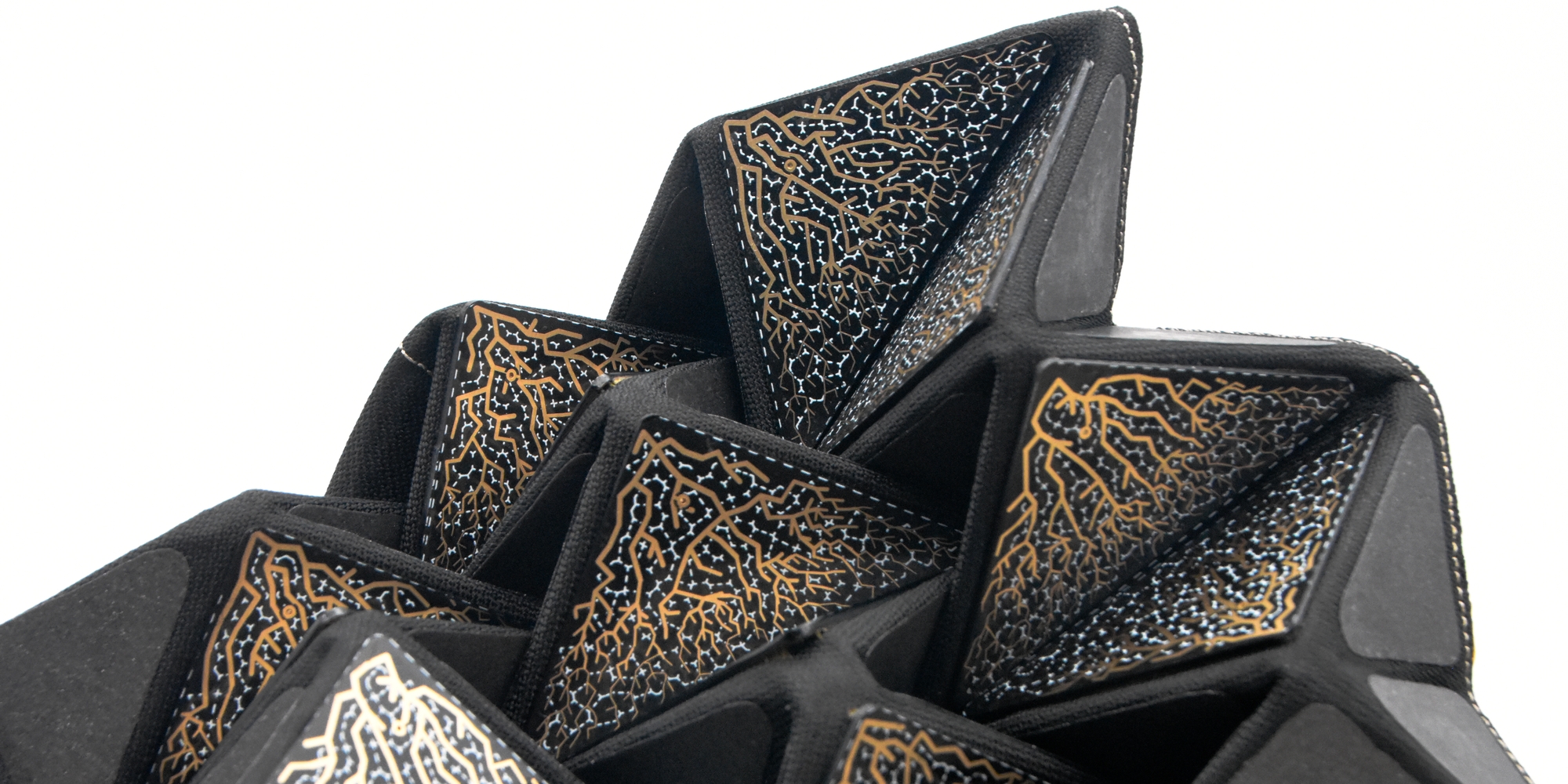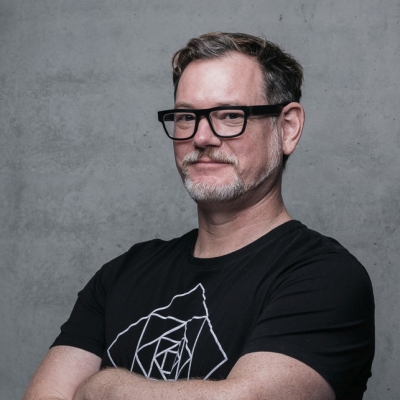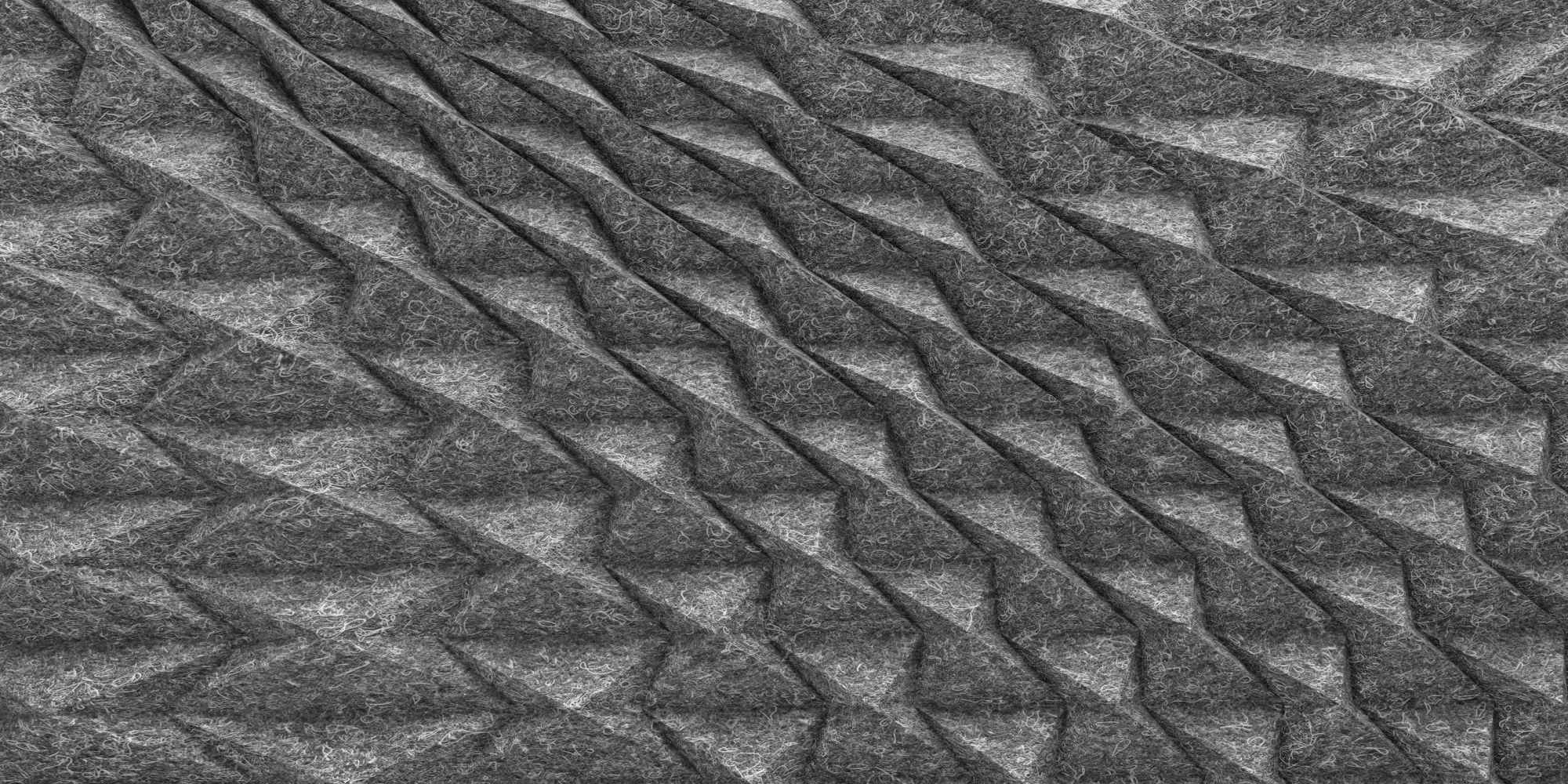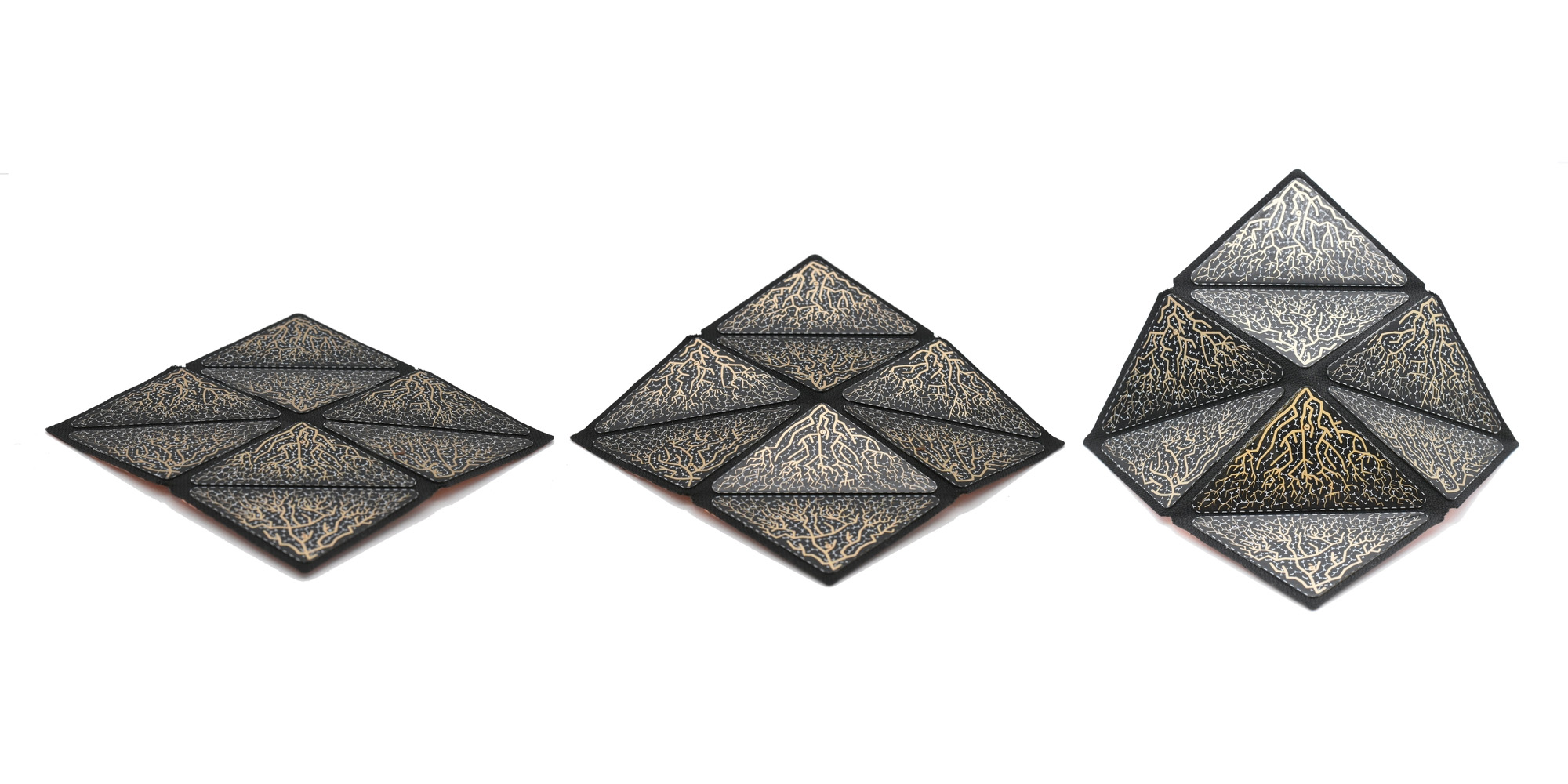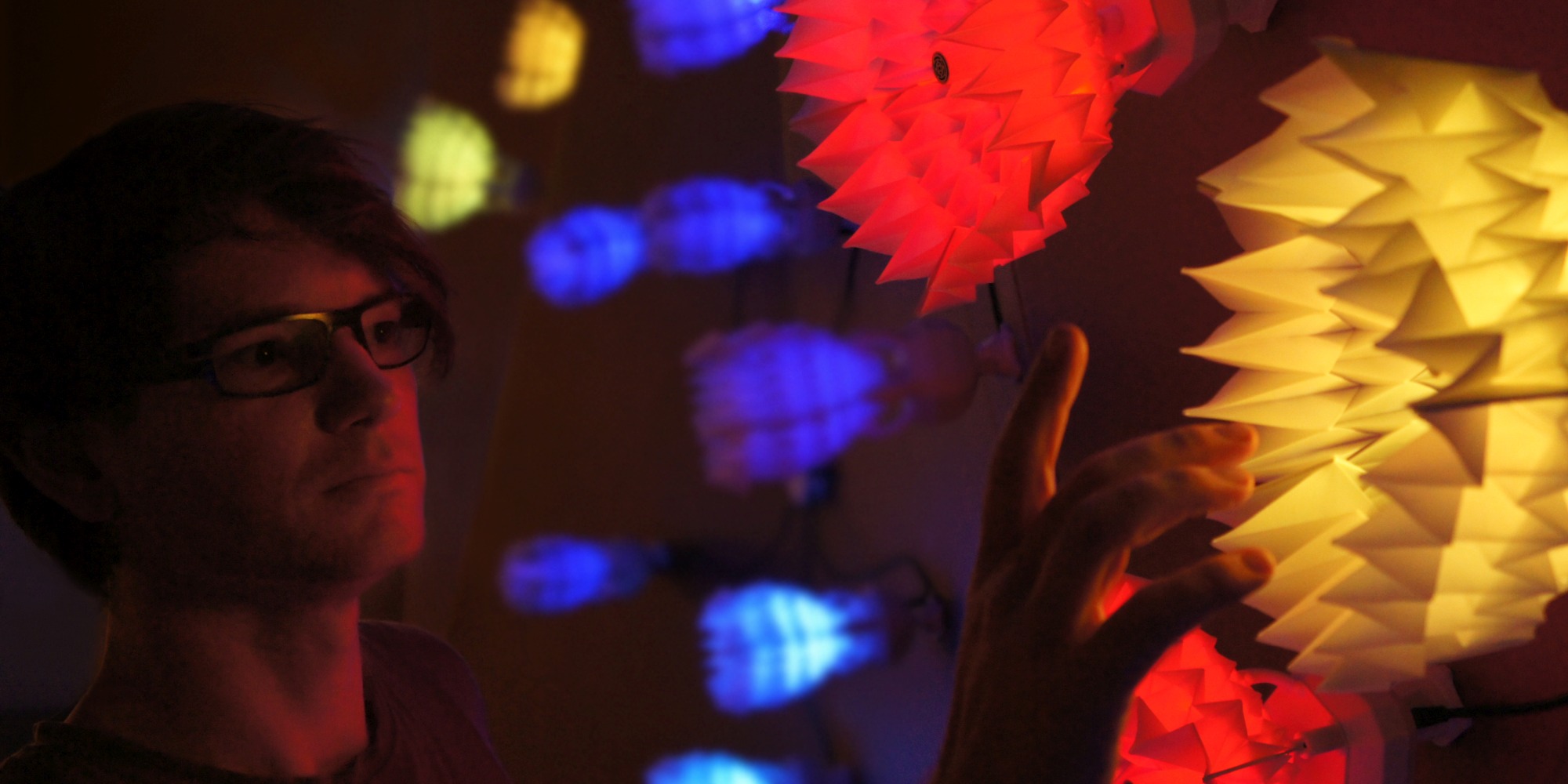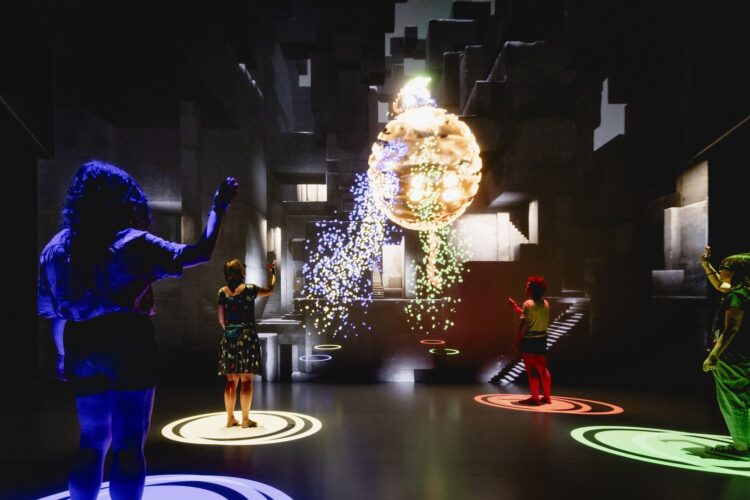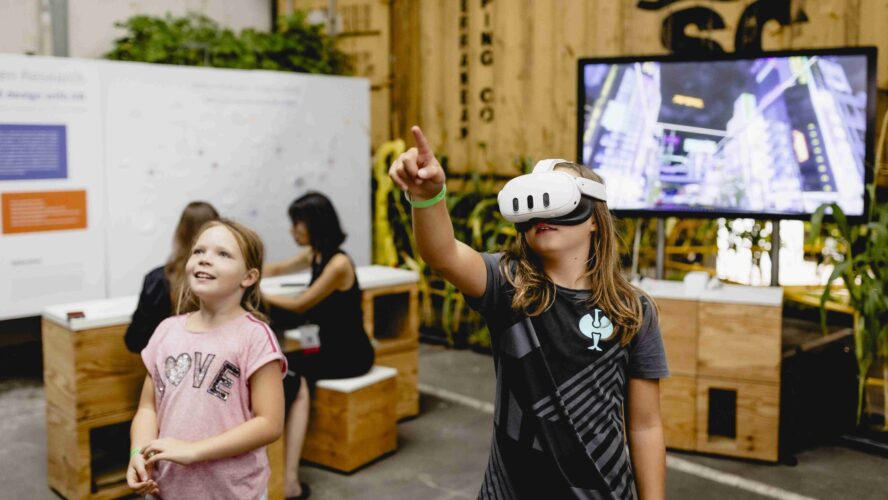How can the art and science of origami make robotics more natural in the future?
The study of folding, through the material study of origami, is complex, intricate, detailed and leads down many paths. We draw our inspiration from art, philosophy, science, craft and engineering to address the subtle problems in programming the transformation of sensible sheets of robotic origami.
Our work extends from the idea that folding is a language of nature, or more generically for artists, that folding is an analogue expression of nature. This statement is expansive and suggests that folding is part of nature. Folding is a procedure, action, event, form, subject, object that permeates nature at all scales, and in an infinite variety of matters. Every philosopher—be they natural, scientific, mathematic, or artistic—finds common and recurring underlying connections between nature and folding. So tantalizingly simple and expressive, the layers of folding make up a complex ecosystem of thought from geometric and mathematical expressions to the infinite cascading folds in the soul (Deleuze, 1993, p. 14).
Embedded deep in the building blocks of nature are the operation of folds and folding. Folding is a principle operation on materials. Folding is uniquely unbounded as an operation, scale independent and dimension forming. As protein folding shows us, complex structures from mRNA are encoded into amino acid chains that self-fold into organic geometries that perform vital processes in life.
Underpinning each recent research-based artworks stems from the fundamental question “what is a fold” and draws inspiration from nature, philosophy, natural folding patterns, geometry, mathematics, robotics, soft-robotics, and new research in digital fabrication. Research outputs range from traditional peer-reviewed papers and publications to artistic exhibits, self-publications, video documents, and exponata.
Key Works
Related Blog Posts:
Origami, robotics and a new world of music
ORIBOKIT™ How to build robotic origami
Ars Electronica Gardens: AUSTRALIA & NEW ZEALAND
Unfolding Creativity
We shape our world
Additional Information
Publications
Gardiner, M. (2019). [Thesis] ORI* on the Aesthetics of Folding and Technology [University of Newcastle].
Gardiner, M. (2011). Oribotics: The Future Unfolds. In Patsy Wang-Iverson, Robert J. Lang, and Mark Yim (Ed.), Origami 5: Fifth International Meeting of Origami Science, Mathematics, and Education. CRC Press.
Gardiner, M. (2018b). ORI* The Art and Science of Origami and Technology Works 2015–2017. (1st ed., Vol. 1). ISBN: 9780648407607. Matthew Gardiner.
Gardiner, M., Aigner, R., Ogawa, H., & Hanlon, R. (2018). Fold Mapping: Parametric Design of Origami Surfaces with Periodic Tessellations. 7th Origami Science Mathematics and Education Conference. 7OSME, Oxford, Great Britain.
Gardiner, M., Aigner, R., Ogawa, H., Hanlon, R., & Reitboeck, E. (2018). Fold Printing: Using Digital Fabrication of Multi-Materials for Advanced Origami Prototyping. 7th Origami Science Mathematics and Education Conference. 7OSME, Oxford, Great Britain.
Gardiner, M., & Gardiner, R. (2012). The functional aesthetic of folding, self-similar interactions. TEI ’12: Proceedings of the Sixth International Conference on Tangible, Embedded and Embodied Interaction, 19–22.
Gardiner, M. (2015). Folding and unfolding a million times over: Longevity, origami, robotics and biomimetics as material thinking in Oribotics. Symmetrion, 26(2), 189–202.
Gardiner, M. (2007). The code in the fold. Origami as art and Science. Bell on the Hand, Future Design Institute, Tokyo, 2, 24–29.
Gardiner, M. (2010b). Oribotics [Futurelab] The Future Unfolds. In Ars Electronica 2010: Repair—Sind wir noch zu retten (pp. 278–282). Hatje Cantz.
Gardiner, M. (2008). Everything Origami. Hinkler Books Pty, Limited.
Gardiner, M. (2013a). Designer Origami. Hinkler Books Pty, Limited.
Gardiner, M. (Ed.). (2005). Folding Australia 2005. Airstrip.
Scott, D., Gardiner, M., & Gardiner, M. T. (Eds.). (2007). Folding Australia 2007. Airstrip.
Talks
Ars Electronica Mix: Inside Futurelab – Origami Robotics with Matthew Gardiner
Matthew Gardiner: ‘Folding = Coding for Matter’ – Solid 2014 Keynote. O’Reilly. (2014).
Matthew Gardiner, creator of Oriboticsm. ITU, & Knoll, M. (2014).
Matthew Gardiner’s 5th Origami Science Education and Mathematics (5OSME) Presentation Gardiner, M. (2010).
